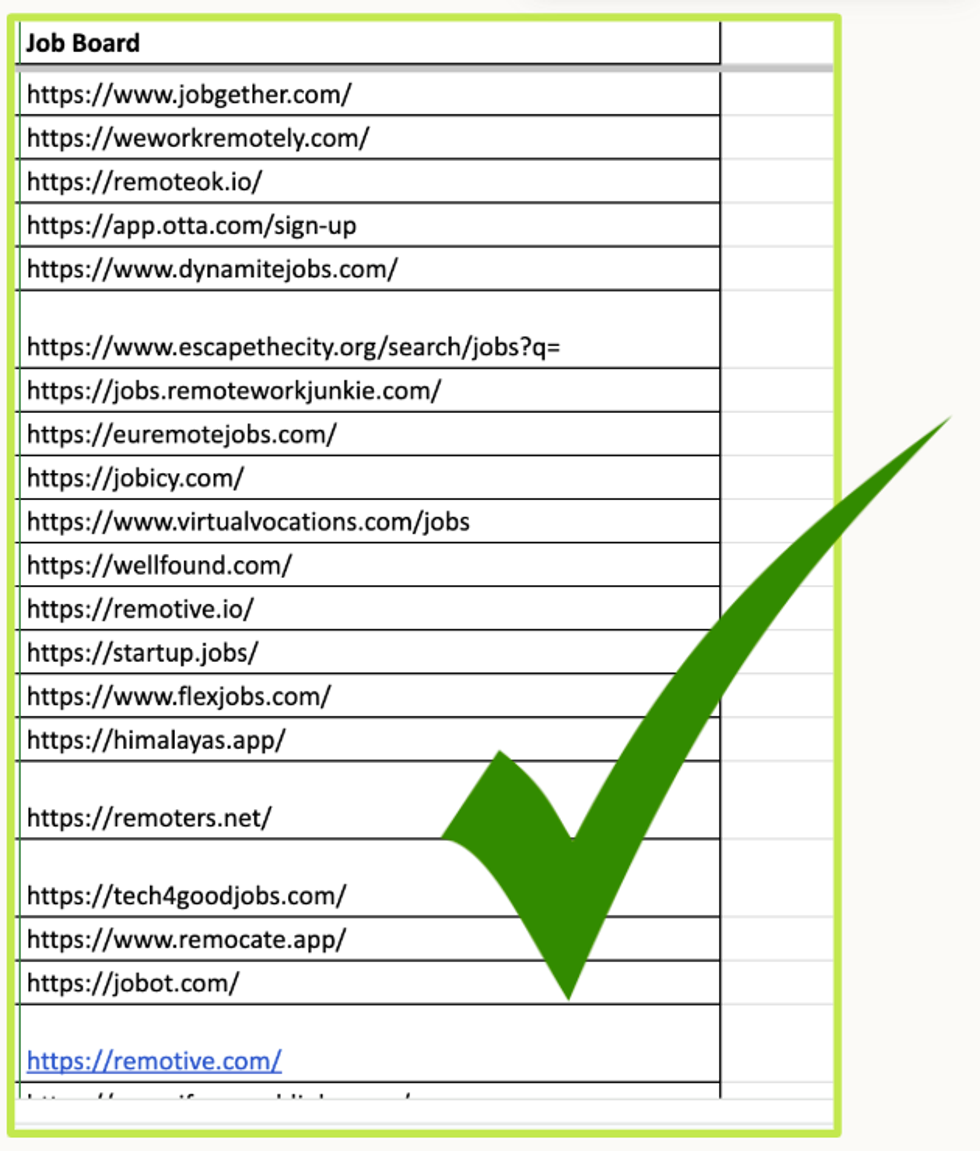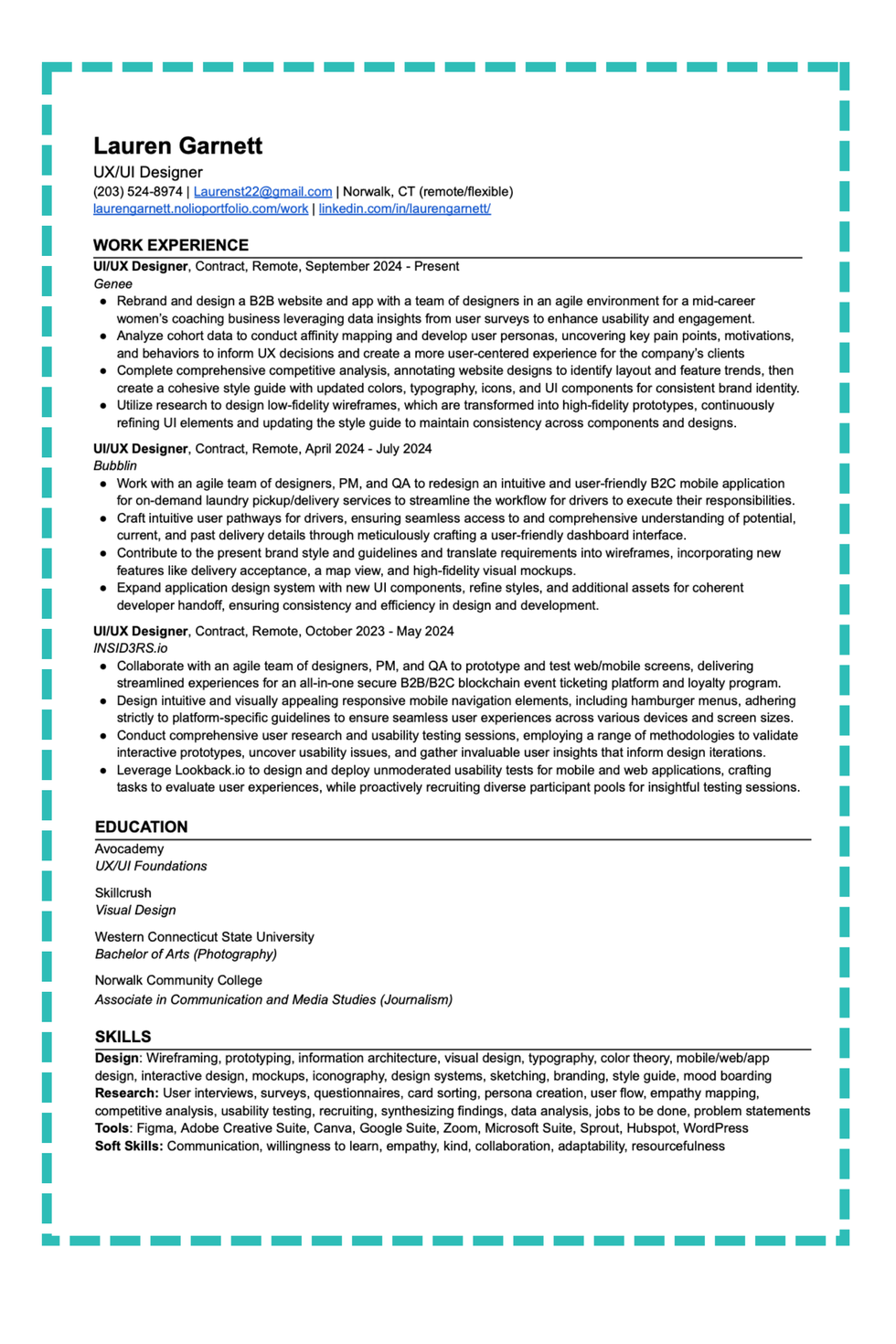Studies show that the number of remote workers has increased threefold since 2020, and it isn’t hard to understand why. Remote jobs (and we’re going to be writing pretty generally here) give you autonomy over your own time and therefore a better work/life balance. You don’t have to confine yourself to a location or even a schedule that doesn’t make you happy. You work on your own terms, and although it sounds too good to be true, many are already living this dream! You probably know at least one digital nomad who is working from the lush beaches of Bali or under the Aurora Borealis night sky in the Finnish Lapland. Stop selling, you’re saying, that sounds perfect! That’s how you envision your life too. The only thing in your way is getting a remote job.
There are lots of reasons to want to work remotely, and even if your dreams are a little more local, we can still get you that remote gig. Let's get into it!
- YouTubewww.youtube.com
Explore the best industries for remote work
First things first! Do you know what you want to do for work?
…Not yet? Perfect! It’s great to have clarity, but not having all the answers when you are just starting out can also be a blessing in disguise. If you don't have your eyes locked on one specific industry or one job title, that means you’re open to endless possibilities.
So, if you are not restricted by a niche or nature of work, here are some industries you can explore:
- Tech (think programming, coding, web development, cybersecurity, data science, etc.)
- Marketing, especially digital marketing
- Virtual customer care
- Finance analysts or accountants
- Online education
- Sales
Most of these jobs only require a decent technology setup complete with a computer and a reliable internet connection. There may be some need for on-site training, especially in sales or finance jobs. However, for the most part, the work can be fully done from the comfort of your desk at home (or Bali, or wherever!).
Read this next: Best remote jobs
These are just some of the top industries, but you can now find 100% virtual jobs in just about every industry. Wondering how to find the right fit for yourself? Start with understanding your existing skills with SkillMeter — a step-by-step guide to creating a customizable career growth plan.
How to get a remote job? Nah, WHERE to get a remote job!
Okay, hopefully now you know what you’re really good at and what you’d like to do for work, so the next step is getting the right job! As with everything else, it’s easier if you know where to look.
Start with free remote job boards:
How to find specialty remote job boards!
Yup, there are still plenty of free and good resources that are available for all to try their luck at remote jobs. Start with PowerToFly’s remote job board for tech and non-tech remote vacancies from top employers worldwide. You can also try other free remote job boards such as WeWorkRemotely and FlexJobs.
Check out this list for more inspo:
Find remote-first companies
Of course, we aren’t going to stop at online remote job boards. Another smart way of landing a remote job is to directly reach out to remote-first companies. Good news, they’re not super hard to find. A great place to start is to select the “remote-first” filter on LinkedIn and Glassdoor, which will automatically filter out companies that require physical attendance.
Read this next: Best remote companies to work for
Tips on how to find remote-first companieswww.youtube.com
Networking in coworking spaces
Is there a cafe in your town that attracts a lot of freelancers or remote workers? Even better if you can find nearby coworking spaces. The next step in how to get a remote job is to actually get out there and network with people who already have a remote job. Most people in coworking spaces are, presumably, working for companies that are open to the idea. Meeting some of these folks can help you go about your own job hunt. Plus, you never know when a meaningful conversation can become a referral and land you the remote job you want!
Read this next: How to network like a pro
How to network to find remote jobswww.youtube.com
Join Facebook groups in your industry niche
You’re probably wondering, “Who even uses Facebook these days?”. Well, you’re about to!
Facebook groups catering to remote jobs and digital nomads are very much alive and resourceful. Here are some you can check out: Remote Marketing Jobs, Remote Work & Jobs for Digital Nomads, and Digital Nomad Jobs.
Start freelancing
You certainly don’t have to fully transition to being a freelancer if you want the comfort and stability of a salaried job. We get you! But freelancing has its own perks if you can make it work for you and your career. As an added bonus, freelancing can be a great option while you’re seeking full time remote work, building your portfolio and adding to your networking.
Also, there are plenty of places you can find freelancing gigs. Upwork, Freelancer, and Fiverr are three of the most reliable platforms for freelancers and clients.
Read this next: How to earn more money freelancing
How to land a remote job with a solid pitch!
The last part of the equation is the pitch. When you get to the vacancy, how do you fill it!
Start with your intro!
To get a remote job, you have to tailor your resume and cover letter for a remote job. Of course, work experience and skills from your previous job are still helpful, but don’t forget to highlight the things that are relevant in a remote setting. For instance, ‘communication’ and ‘timeliness’ are two qualities most remote employers need in their team. You could also present specific case studies that exhibit you are ‘self-motivated’ and ‘adaptable’.
Read this next: Great skills to put on a resume
Build an online presence
Personal branding has been quite the buzzword in 2024, and it’s not going anywhere in 2025. If you’re on the lookout for a remote job, a virtual brand for yourself can be a huge help, and it doesn’t have to be anything influencer-level robust. Your brand might be how your future remote employer finds you, and you should consider your LinkedIn profile your indirect pitch to anyone looking.
Customize your bio, services offered, portfolio, and posts to hint (or state firmly!) that you’re actively looking for remote work.
Read this next: 5 tips for building a strong online presence
Prepare for remote-specific interview questions.
Okay great, after a lot of work applying to some great options, you’ve got the interview! It’s quite natural if your interviewer has a few questions that assess whether or not you can work efficiently in a remote setup. Don’t be surprised if they ask, “How do you stay productive working remotely?”
A simple and honest question, and you can answer it with simple, actionable steps and honesty in return. “I have created a dedicated workspace at my home, which allows me to focus on work when I am working. At my previous jobs, I also learned to diversify time, like any other asset, between projects. So, even if there are multiple projects at a time, productivity is not an issue."
“How do you prefer to communicate, and what is your availability like?” is another important question when setting up a remote work contract. Keep in mind, when everybody works at their own location and timing, communication is key. This is another question you can answer with clear steps and foresight.
For example: “I prefer communication via email. For calls, we can always schedule at an hour’s notice. I also set aside deep work time on my calendar, so my colleagues know when I’ll be slower to respond, and I prioritize my tasks using tools like Notion, etc., so everybody can check the status”.
Read this next: Work-from-home interview questions hiring managers love to ask
Ask relevant questions at the end of the interview.
Interviews go both ways, of course! And you’ll probably want to know how this potential workplace handles their remote workers.In fact, curiosity from a candidate lets the interviewer know that they are interested and serious about the work.
If you are curious about how certain things work, especially if the workplace is hybrid and some employees are in-office, ask questions like; how does the team collaborate across time zones? What software tools do you use for communication? How do you make remote employees feel included? In remote setups especially, clarity is what makes them work well, so don’t be afraid to get your questions answered.
Read this next: 6 unique questions to ask at the end of an interview











